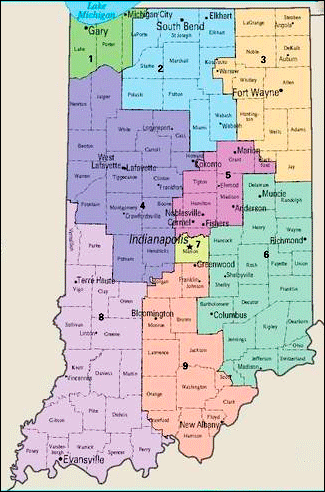By Jim Ellis

Rep. Susan Brooks represented Indiana’s 5th District, a reliably Republican district over the years.
With Brooks retiring and Montana at-large Rep. Greg Gianforte (R-Bozeman) announcing that he will run for governor, the open seat count grows to 10 including the two North Carolina special congressional elections that will be filled on Sept. 10.
Most news outlets were reporting the Brooks announcement as a surprise, in large part because she chairs the National Republican Congressional Committee’s candidate recruitment operation. But, rumors of Brooks moving on from the House have circulated before, and she did attempt to become governor when incumbent Mike Pence left office after being selected as Donald Trump’s running mate. There was also speculation that she could leave the House next year in order to run for state attorney general.
Immediately after Pence left his Hoosier State gubernatorial re-election effort to campaign for vice president, an Indiana Republican Party committee was empowered to choose a new gubernatorial nominee. Rep. Brooks, along with fellow US Rep. Todd Rokita, declared for the special nomination, but the party committee members instead chose then-Lt. Gov. Eric Holcomb who would go onto win the general election and now stands for re-election in 2020.
Rep. Brooks says her retirement decision is primed because of a desire to begin devoting her life to interests outside of politics. She will, however, continue in her NRCC role to lead the party’s recruitment apparatus in serving the balance of this current term.

